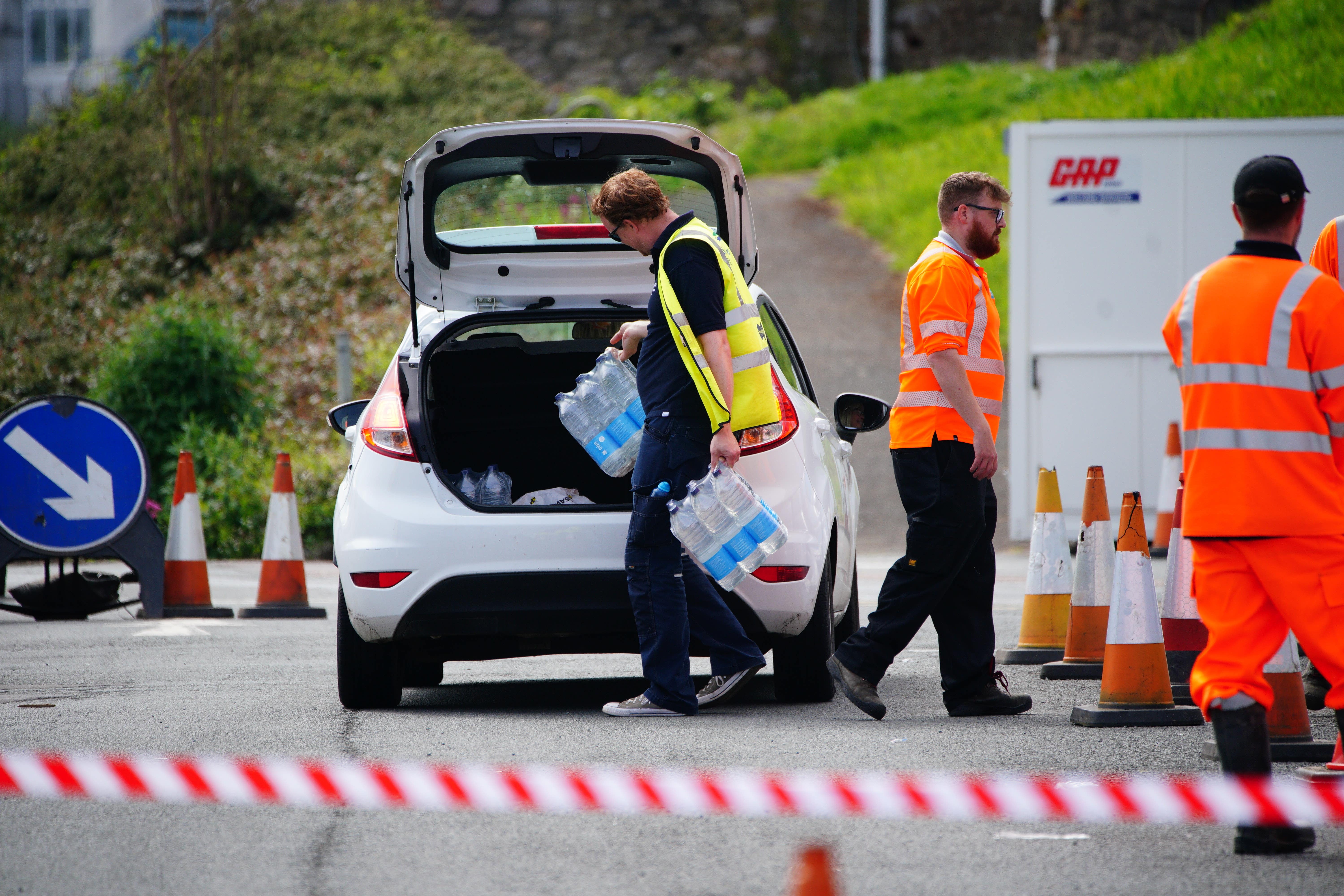Pennon announces £16m Devon contamination hit and rising sewage spills
During the parasite outbreak in Brixham over the summer it supplied bottled water to thousands of households for eight weeks.

South West Water owner Pennon has announced rising cases of sewage spills and a hit of about £16 million from the parasite contamination crisis in Devon earlier this year.
The group said it racked up the costs from the contamination incident in Brixham, after paying compensation to affected households, providing bottled water for two months, and after “extensive” action to clean the network.
The outbreak in May left some people in hospital and hundreds of others were ill after contamination of the water supply by cryptosporidium, a parasite which causes sickness and diarrhoea.
About 17,000 households and businesses in the Brixham area of Devon, supplied by South West Water (SWW), were issued with a “boil water” notice on May 15, as scores of reported cases of illness emerged in the town.
The notice, instructing them not to use their tap water for drinking without boiling and cooling it first, remained in place for eight weeks for some households in the area.
The cryptosporidium water quality event in Brixham this summer was an incredibly rare event for SWW and we worked swiftly and diligently to identify the issue, clean the network and restore full supply to all customers
Pennon said: “The cryptosporidium water quality event in Brixham this summer was an incredibly rare event for SWW and we worked swiftly and diligently to identify the issue, clean the network and restore full supply to all customers.”
It said it had cleaned and flushed the network 27 times, replacing sections of the 18-mile network.
Pennon also said that the number of sewage spills had increased over the half year to September 26, blaming “the third wettest October to August since records began”, which it said had left groundwater levels “exceptionally high”.
But it said action to focus on preventing sewage pollution on Britain’s beaches had meant a reduction during the peak summer bathing season, saying that average spills were at one of its lowest levels since 2016.
Pennon said like-for-like revenues in its first half had been affected by lower levels of water usage, which it put down to its Water is Precious efficiency campaigns.
It said full-year results would see lower demand offset bill hikes and increase in customer numbers.
But it is keeping costs in check as it rolls out measures to make savings across the business.
Pennon has come under fire after announcing in June that its chief executive Susan Davy saw her pay package jump 58% after picking up a £298,000 shares bonus, despite pollution incidents nearly doubling at South West Water last year.
Pennon’s annual report showed that Ms Davy’s total pay jumped to £860,000 in 2023-24 from £543,000 the previous year.
The group also courted controversy this year when it increased its full-year dividend payout to investors, despite reducing it by £2.4 million after it was handed a record fine for sewage spills.
SWW was fined £2.2 million in April last year for illegal sewage spills across Devon and Cornwall spanning four years.
In June, regulators also cleared Pennon’s £350 million buyout of Sutton and East Surrey (SES) Water, adding 845,000 new customers to the FTSE 250 firm.
Bookmark popover
Removed from bookmarks